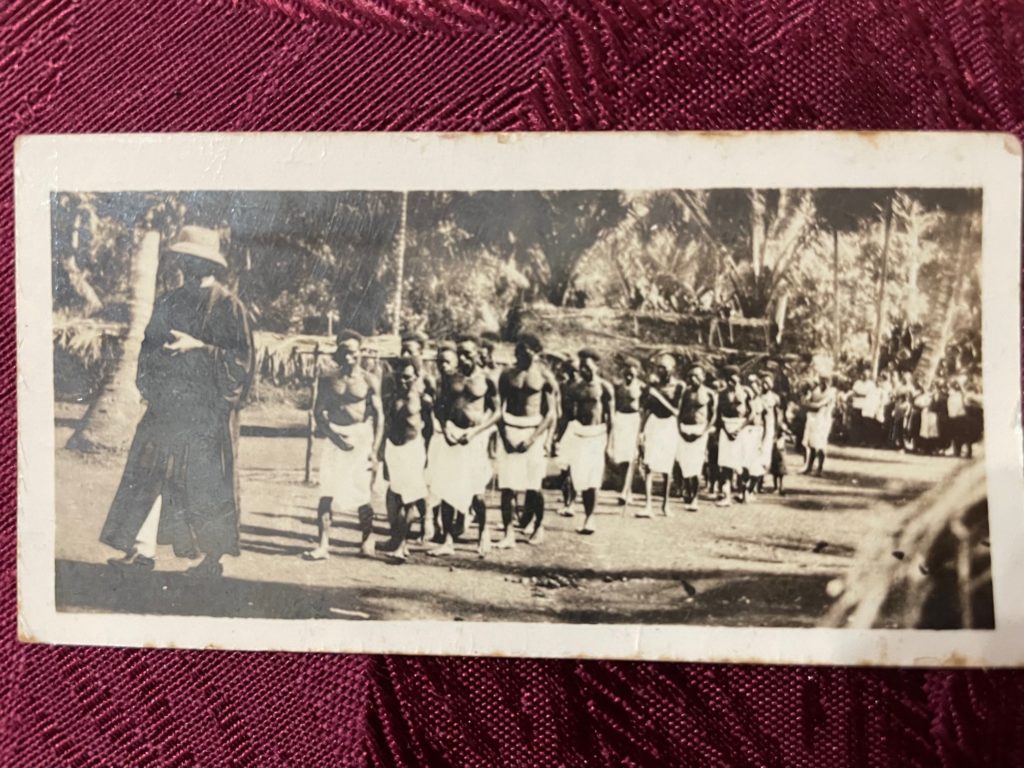
I found the card above in a box of old, old family photos. On the back was printed:
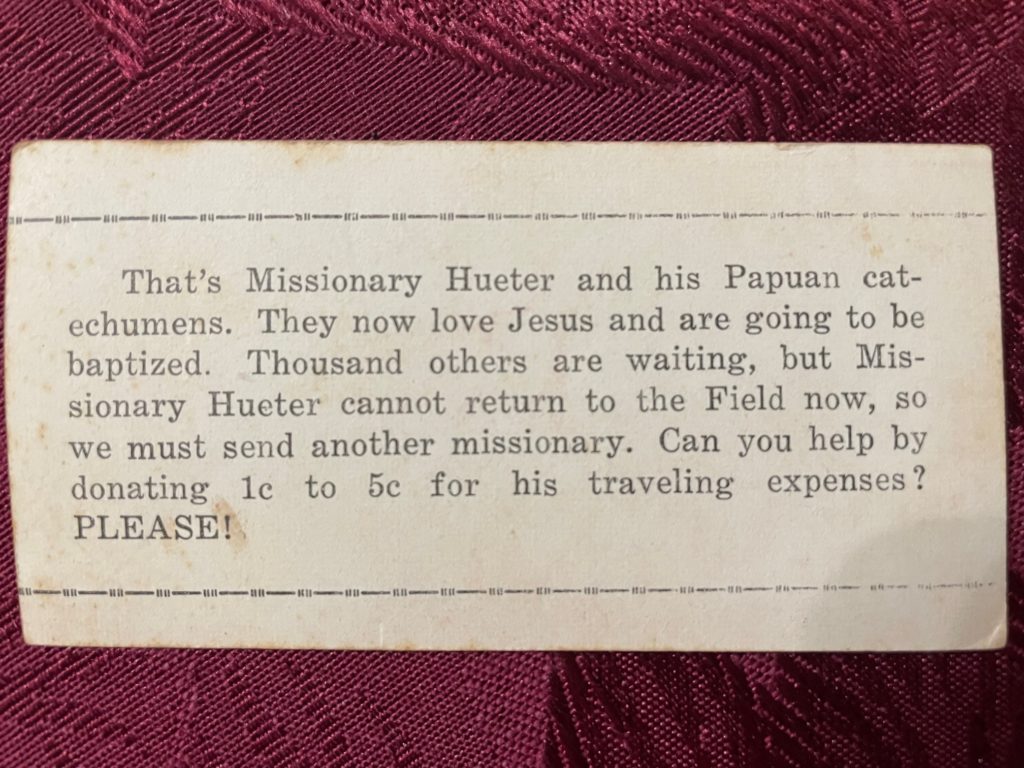
I date it from the late 1920s or early 1930s. It was either kept by my beloved Great Aunt Helen or Great Uncle Ray, my grandpa Virgil‘s younger siblings.
Both Aunt Helen and Uncle Ray would write letters to me wherever I went in the world, and particularly when I first lived in Zimbabwe. (Yes, that’s right, pre-email. I’m that old.)
And, these people who I knew to be kind and community service-minded humans also believed what’s written on this card and two others I found in the box:
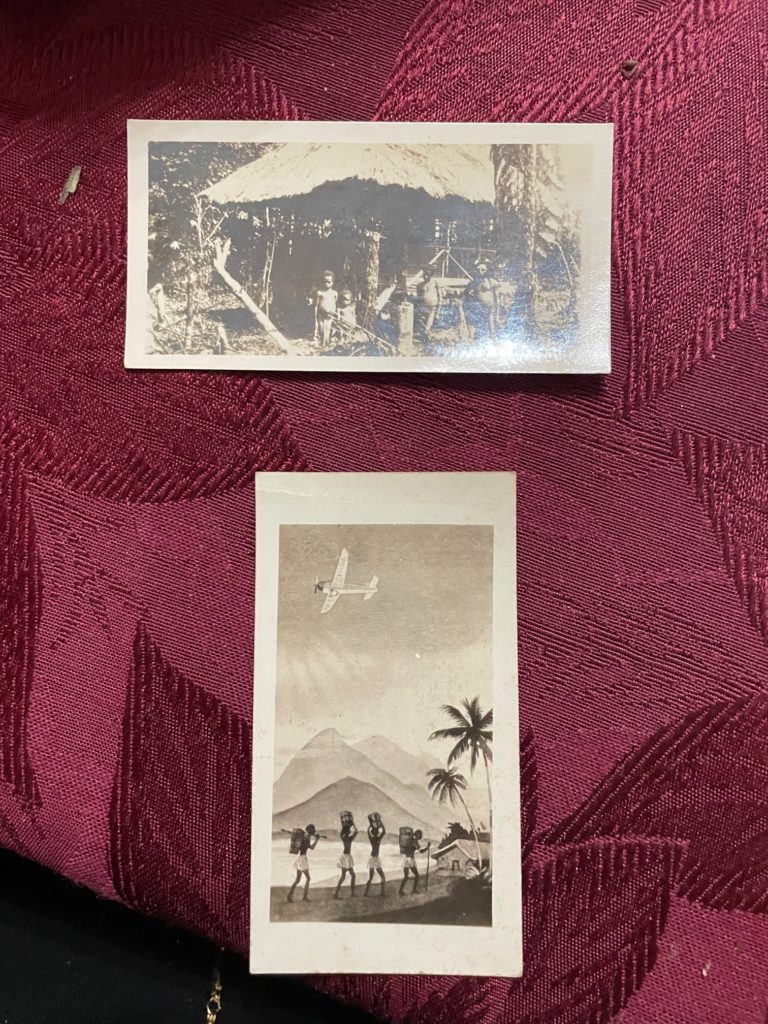
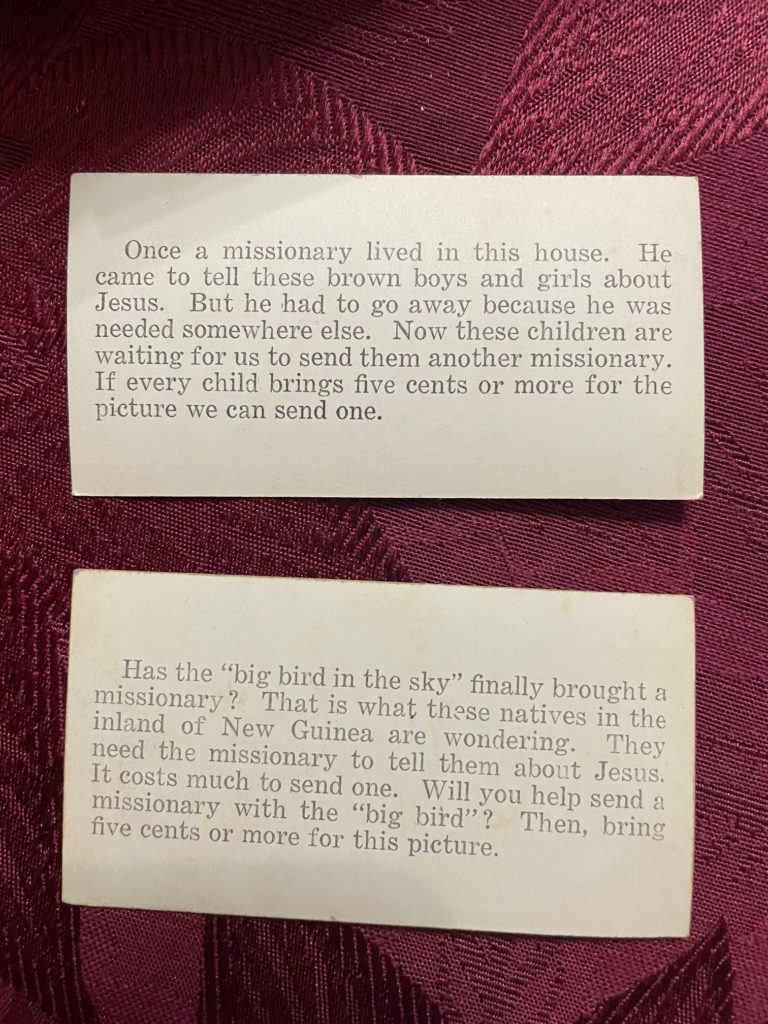
Here in front of me was the origins of the international aid and philanthropy sector, undeniable. My stomach sank and churned as I handled each one. The utter violence of this language…is so much. It evokes a lot of shame for me.
My beloved aunt and uncle would have believed that “thousand others” and “these brown boys and girls” were “waiting” and that “they needed the missionary to tell them about Jesus.” Because either my aunt or uncle thought it important enough to save these fundraising cards.
“Culture is this idea of shared responsibility for our children.” ~ Darbee Hagerty
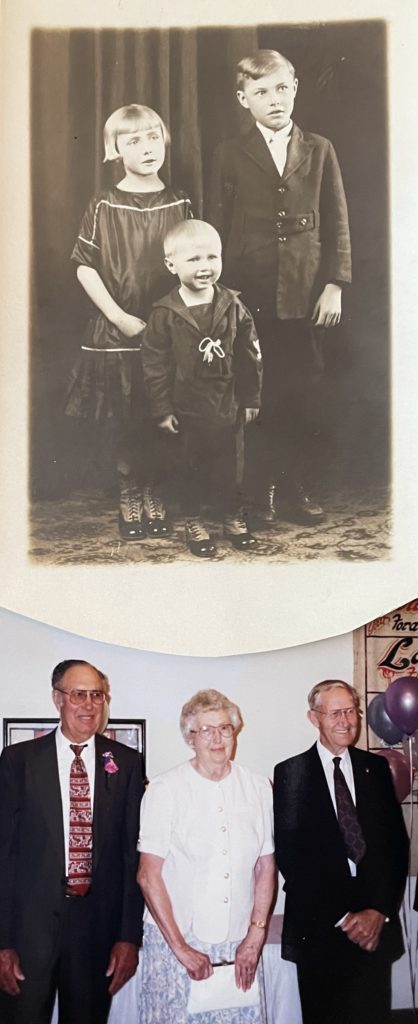
These relatives, who had both been such a loving presence in my young life, had given the 1 or 5 cents to support this endeavor to “bring Jesus” to Papua New Guinea. Here was Christianity’s key role in colonization, captured in a 3″ x 1″ (7.5 cm x 2.5 cm) photo card. Here was “white is right” supremacy and “West is best” superiority being peddled as charity in the early 21st century. Here was the origins of feel good about yourself while “changing the world,” in this case the erasure of cultures and languages and identities in the name of salvation.
So painful, these artifacts – the world views of my Aunt Helen and Uncle Ray and all my elders, and if I’m honest, still held by far too many of my contemporaries. Probably, they thought of me as a missionary too when I first went to Zimbabwe. Maybe I wasn’t wearing a pith helmet and robes, baptizing people against their will, but was this in their imagination as they wrote their letters to me?
At the end of each of his letters to me, Uncle Ray would write something to the effect of, “I know I don’t have to worry about you there, because God is everywhere.” This didn’t feel like an imposition of belief, but rather a reassurance of something bigger holding us. I’m grateful to be able to recall these letters now, how each one honored our family connection across the thousands of miles.
The both/and contained in our lineages can be hard to navigate at times. Here I am now, working for years to shift the narrative frames that surround global development – away from charity and saviorism and the violence of assuming “we” know what’s right for someone else “over there.” Then I find this paper ephemera, evidence of these world views in my family…in myself. There’s always going to be more work to do because hierarchically-rooted ideas of “helping” – often requiring rigid or strict adherence to dominant culture, and rarely accountable – are so baked into my culture.
This is how my elders were shaped as children, by an institution also hell bent on rigid, strict ideas of how to be a “good person” so you can get to heaven.
These cards now sit next to my computer screen. Not prominent, but visible to remind me from where I came. Visible to remind me that healing my lineage remains some of the most important work I can do related to the social good sector. I believe the best way I can honor Great Aunt Helen and Great Uncle Ray now is to make sure my work helps “right the wrong” of their world views.
***
Related Posts
Wrestling with my white fragility
Serving with Cultural Humility

